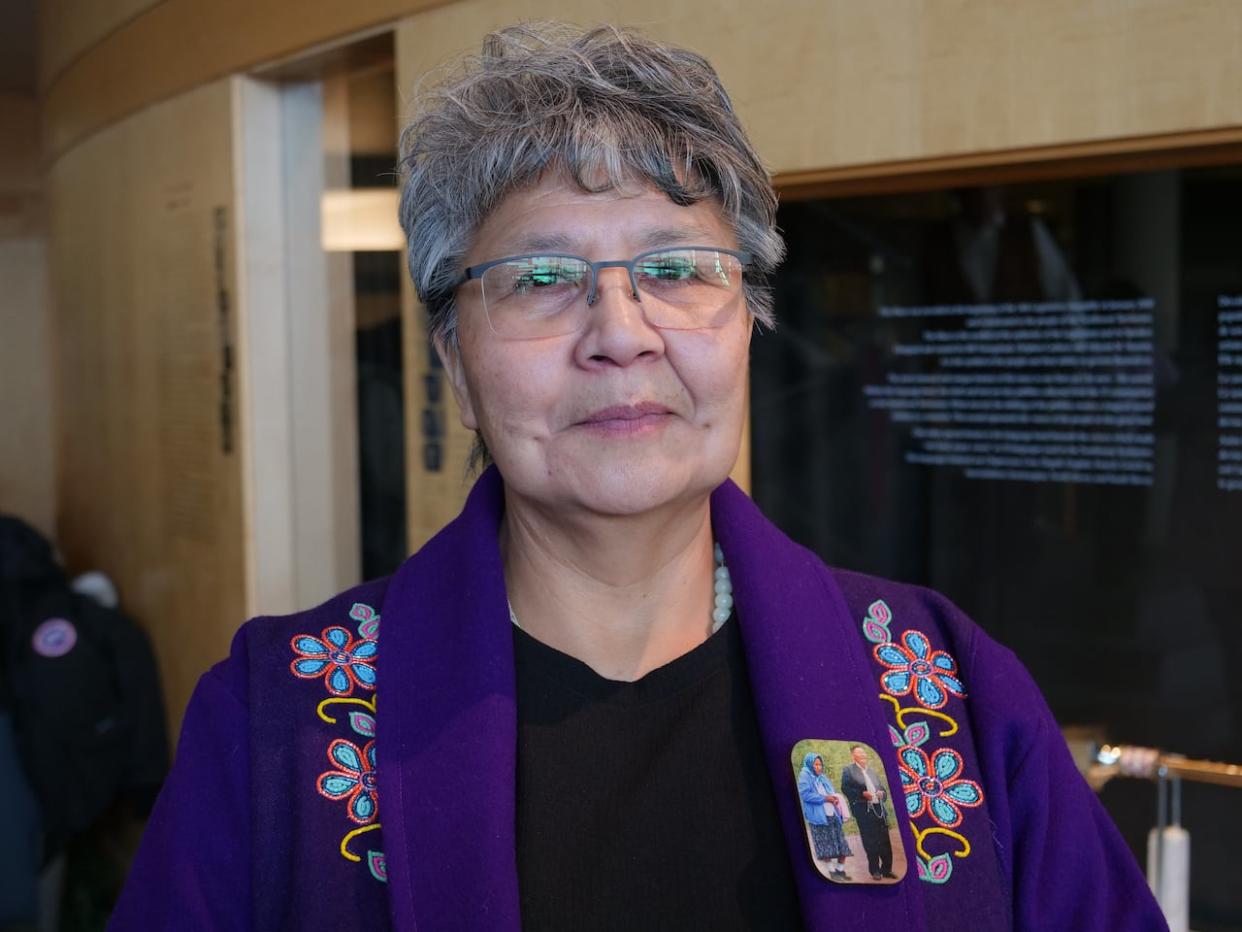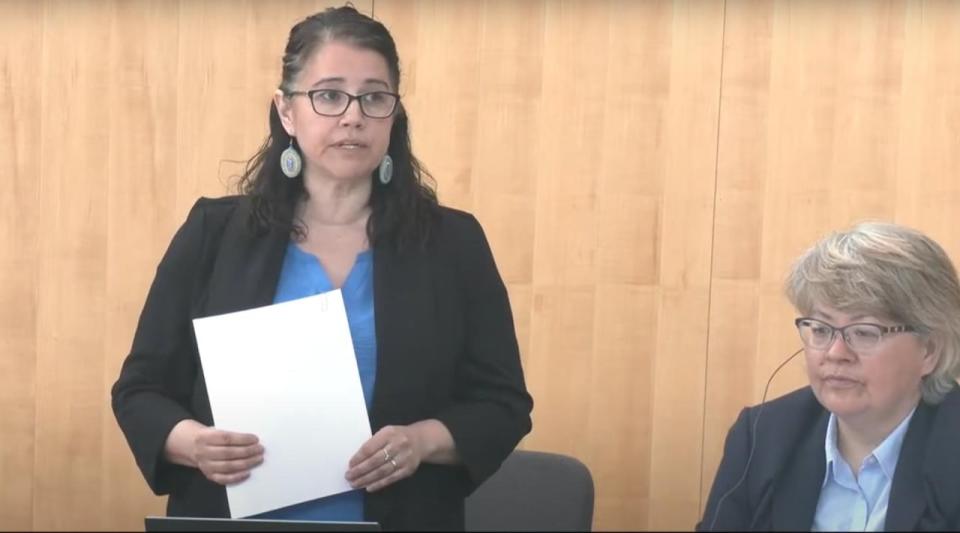Standing committee calls on N.W.T. health minister to pause changes to benefits regime

N.W.T.'s standing committee on social development has asked the minister of health and social services to pause the roll-out of controversial changes to the territory's extended health benefits program, which are set to take effect on Sept. 1.
The program helps cover the cost of prescription drugs, medical supplies and equipment that aren't eligible for coverage through third-party insurers.
In a letter to Lesa Semmler, dated June 3, committee chair Jane Weyallon Armstrong wrote that the committee has yet to see a full cost-benefit analysis of the changes — or the costs of alternative options.
The public has also received contradictory messages about the eligibility criteria for the new regime, she said.
"We believe it is crucial to address these concerns thoroughly before moving forward with any changes to the extended health benefits program," Armstrong said in a statement. "Our priority is to ensure that the changes do not negatively impact the residents who rely on these benefits."

Lesa Semmler is N.W.T. minister of health and social services. (NWT Legislative Assembly)
The government has advocated for the new benefits policy saying the old one has seen little change in 34 years and no longer meets objectives of fairness and equity.
But critics of the new program say it makes matters worse, not better, by restricting access based on income and doing away with a list of 50 conditions that were previously guaranteed coverage.
The program establishes a low-income threshold, and residents who are over that threshold need to pay a portion of their costs out of pocket; they're also not eligible for dental or vision coverage.
Members of the public who provided feedback to the government on the policy said they believed people should receive help to purchase costly medical equipment and supplies even if they are above the low-income threshold, according to the What We Heard document, which reported the results of the territories' consultation process.
People also said they supported providing access to supplementary health benefits to all N.W.T. residents, but not by removing existing programs or reducing coverage for residents currently covered by the specified disease condition program.
The committee told Semmler it needs to know how much the government stands to save through income testing, what removing income testing but maintaining current levels of benefit support would look like and what removing income testing and expanding levels of benefit support would look like.

